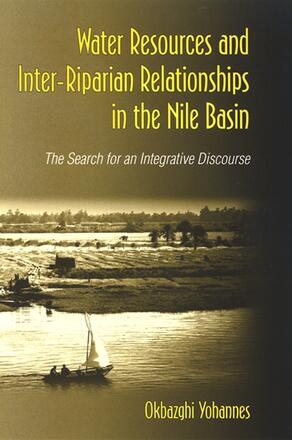
Water Resources and Inter-Riparian Relations in the Nile Basin
The Search for an Integrative Discourse
Alternative formats available from:
Argues for new water policies in the Nile River Basin.
Description
Human demand for water resources is rising at an alarming rate in response to rapid population growth, rival development requirements, and the depletion of ecological resources. In this book, Okbazghi Yohannes examines the various facets of the competition for water resources among the ten Nile River Basin countries as they compete to harness the river's resources for purposes of irrigation-based agriculture and hydropower-based industrialization. Through a careful investigation of the rival states' strategies to capture greater shares of water resources, Yohannes assesses the lasting impact on the watershed ecology in the basin and on the hydrological demand of the river itself. He proposes the formation of a radically different water regime to address the looming demographic crisis, the stark regional food insecurity, and the region's collapsing hydro-ecology. This book shows how the effort to construct a regional water regime cannot be separated from the necessity to construct an ecologically sustainable internal water regime in each co-basin state, particularly in terms of ecological resources conservation and ecosystem services protection.
Okbazghi Yohannes is Professor of International Studies at the University of Louisville and the author of several books, including Political Economy of an Authoritarian Modern State and Religious Nationalism in Egypt and (with Kidane Mengisteab) Anatomy of an African Tragedy: Political, Economic, and Foreign Policy Crisis in Post-Independence Eritrea.
Reviews
"The author sounds the alarm of the coming dangers, warning all concerned and especially the leaders of the relevant countries, urging them to rethink their national focus in favor of collective strategies from which all can benefit as well as avoid, or at least mitigate, further disasters. " — Bereket Habte Selassie, University of North Carolina at Chapel Hill